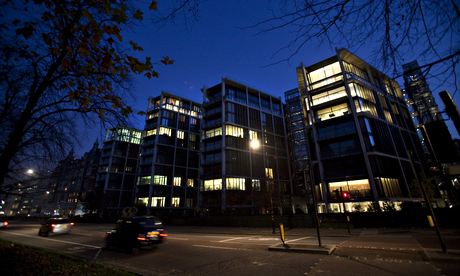The Economic Power of London Homes!
Posted on April 10, 2014
For the last few years, I have been fortunate to have been involved, at least loosely, with the refurbishment of some of the most extravagant homes in London.
When I say involved, I mean right near the bottom of the food chain as the supplier of electrical labour to one of my clients who had either the good sense, or good fortune, to move into this market when every other sector of the economy was spectacularly collapsing into oblivion.
If it wasn’t for the robust nature of this extraordinary sector of the property market, I may well have ceased trading, there just wasn’t any other work around apart from the odd school refurbishment in the holiday season. The economy was washed up…Finished.
During this period, I have visited properties in Bishops Avenue, Upper Brook St, Hill Street and Trevor Square whilst also supplying labour to places I wasn’t allowed within touching distance of, such as the flagship development by Candy & Candy on one Hyde Park Corner.
No one in: Number One Hyde Park Corner is a “Buy To Leave” Paradise
The internal design of these properties is almost too extraordinary to explain, with technological one-upmanship leading the way in the shape of dance floors that transfer into swimming pools, cinemas, incredible sound systems, inside tennis courts, lifts that transport your car into a basement car park, lighting systems that take a full day of training to operate, rooftop party areas that can be covered or uncovered at the press of a button…I could go on and on.
But what is really bizarre about this market, is the fact that many of these properties are barely occupied and in many cases no-one even knows who actually owns them; not the architect, not the estate agent, not the builder and certainly not me.
London property, it appears, is the new gold, and many of these houses are known by London’s top estate agents as “Buy to Leave” meaning exactly what it says; purchased and left, a safe investment for a billionaire from one of the emerging world economies known as BRIC (Brazil, Russia, India and China) and MINT (Mexico, Indonesia, Nigeria and Turkey). In 2013, 83% of London homes were purchased by non UK buyers.
All of the countries above, have had or are likely to have, fluctuating socio-economic and political problems through almost uncontrollable financial growth, so you can see why London would appear a safe bet to foreign investors, especially as, incredibly, the housing sector stayed robust after the 2008 crash.
What does seem a bit sad to me, is that many these beautiful properties are empty; I read an article in the Guardian recently saying that 60% of Mayfair was empty (bought and left) and it was actually very ghostly in the evenings. I wouldn’t want to live like that, it can’t be nice for established residents in the area.
I am not in a position to complain, one because I don’t live there and wouldn’t want to and two, because, as I said before, it is a market that came to my rescue; however, I do find it more than a bit tragic that some of London’s most beautiful areas are descending into soulless ghost towns where even footballers, film stars and Maria Miller are getting priced out of the market.
It does make you wonder where it all ends but incredibly, and this is true, we are now at the stage where embassies from America and China are selling up and moving across the river to cheaper premises, allowing them a cash bonanza from a faceless itinerant billionaire who may never even visit the property.
Whole nations are selling up!
A lot has been said about Roman Abramovich and Lakshmi Mittal who both reside in Kensingston Palace Gardens (Mittal owns £500m of property there) but at least they are enjoying their homes and actually living there and whilst their lavish spending my appear…In fact is, grotesque, they have not been afraid to part with it, with people down the line benefiting financially.
When all said and done, no-one can deny that this bizarre investment sector has been extremely obscene, some might even say unsavoury, but I do wonder what would have happened to the South-East economy without it? There wasn’t anything else happening.
I have not got enough fingers to count up the amount of businesses I know who would have probably gone under without the booming London property market, so multiply that a few thousand times over and you will come to the conclusion that London might well have gone down with Dublin, Athens, Milan, Lisbon and Madrid.
What it has made me realise, is that know matter how socialist some of us try to be by morally doing what we like to think is the right thing; it is almost impossible, if you are a business in London or Thames Valley, not to have had, at some point, suspicious money filtering down the system into bank your account.
If everyone was 100% moralistic about where the source of their money came from, I guess there would be far more people living in a box.
That’s how capitalism works.


Got something to say?